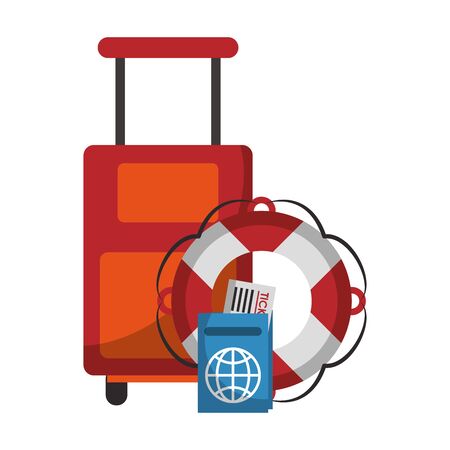Introduction to Adventure Sports and UK Travel Insurance
Adventure sports have become an increasingly popular choice for British holidaymakers, whether it’s hiking in the Lake District, skiing in the Alps, or trying out water sports on the Cornish coast. However, these activities come with their own set of risks, making it essential to understand how they are covered under typical UK travel insurance policies. Not all standard travel insurance automatically covers adventure sports; many policies require additional cover or specific add-ons for higher-risk activities such as mountain biking, scuba diving, or paragliding. As we explore real-life case studies throughout this article, you’ll see why it’s crucial to know exactly what your policy includes—and what it doesn’t—before you set off on your next adventure. Having the right insurance not only protects you from unexpected costs but also offers peace of mind to families and solo travellers alike.
2. Eligibility and Exclusions: Setting the Scene
When it comes to adventure sports, understanding the fine print of your UK travel insurance policy is absolutely crucial. Many travellers set off with their adrenaline-packed itineraries, only to be caught out by unexpected exclusions or overlooked requirements when they need to make a claim. Here’s an overview of what typically determines eligibility for adventure sports claims and the common exclusions that can present challenges for British holidaymakers.
Common Eligibility Requirements
Most UK travel insurers have a specific set of criteria that must be met before you’re covered for adventure sports incidents. Policies often distinguish between “standard” activities (like hiking) and “high-risk” pursuits (such as skydiving or white-water rafting). Below is a summary of typical requirements:
| Requirement | Example |
|---|---|
| Declared Activities | You must declare all intended adventure sports at the time of purchase. |
| Use of Licensed Operators | Activities should be arranged through licensed, professional providers. |
| Safety Gear Compliance | Use of helmets, harnesses, and other safety equipment is mandatory. |
| Age Restrictions | Certain sports may only be covered if you fall within specified age ranges. |
| Pre-Existing Medical Conditions | You may need to disclose any conditions that could impact your participation or increase risk. |
Typical Exclusions and Challenges Faced by Travellers
No matter how carefully you plan, there are pitfalls that catch out even the most seasoned adventurers. Here are some frequent exclusions and issues:
- Unlisted Activities: If your chosen sport isn’t named in your policy, claims are likely to be rejected.
- No Cover for Professional or Competitive Events: Most policies exclude incidents occurring during competitions or professional participation.
- Lack of Documentation: Failing to provide proof (receipts, instructor credentials) can hinder a claim.
- Alcohol or Substance Involvement: Any injury sustained while under the influence is almost always excluded.
- Ineffective Safety Precautions: Not following recommended safety procedures can void your cover.
The British Traveller’s Dilemma: A Real-Life Perspective
Imagine booking a last-minute snowboarding trip in the French Alps. You assume your annual multi-trip policy covers all winter sports. After a tumble on an off-piste run, you discover that only marked slopes are covered—leaving you with hefty medical bills. This example highlights how easy it is to misinterpret eligibility or overlook exclusions buried in policy documents.
A Quick Comparison Table: What’s Often Covered vs. Not Covered
| Usually Covered* | Usually Not Covered* |
|---|---|
| Skiing on marked pistes Scuba diving (with certified guide) Mountain biking on recognised trails Kayaking in calm waters |
Skiing off-piste without guide BASE jumping Climbing above certain altitudes Any activity under the influence of alcohol/drugs |
*Always check your specific policy wording for exact details.
In summary, being aware of these eligibility criteria and exclusions helps UK travellers avoid disappointment and unexpected costs—especially when it comes to making claims related to adventurous getaways.

3. Case Study: Mountain Biking in the Lake District
For many UK families, the Lake District is a popular destination for adventure and outdoor sports. One London-based family’s half-term holiday turned into an unexpected test of their travel insurance policy after an accident on the mountain biking trails near Keswick. The parents, avid cyclists themselves, had chosen a comprehensive family travel insurance policy that specifically included cover for adventure sports such as mountain biking, aware of the region’s challenging terrain.
The Incident
During a guided ride along one of Cumbria’s well-known mountain bike routes, their teenage son took a fall on a slippery descent, sustaining a fractured wrist and minor head injury despite wearing protective gear. The incident required immediate medical attention at a local hospital, followed by several physiotherapy sessions upon returning to London.
Making the Claim
The family contacted their insurer from the hospital. Their policy featured 24-hour emergency assistance and covered medical expenses up to £5,000, including ambulance transport within the UK. They submitted all necessary documentation—medical reports, proof of activity participation, and receipts for treatment costs—through the insurer’s online claims portal.
The Policy Response
The insurance provider responded promptly, confirming that mountain biking was listed as a covered activity under their adventure sports add-on. Within two weeks, the insurer reimbursed all eligible expenses: hospital fees in Cumbria, private follow-up consultations in London, and even part of the cost for hiring replacement bikes so the family could continue their holiday safely. The process highlighted the value of choosing a policy that explicitly covers intended activities and provides efficient claims handling—a crucial lesson for families planning active getaways across the UK.
4. Case Study: Surfing in Cornwall
Adventure sports are a popular choice for young travellers, especially in the scenic coasts of Cornwall. A group of university friends from Bristol decided to take a weekend surfing trip to Newquay, an area renowned for its waves and surf culture. Their experience not only tested their skills on the water but also their understanding of travel insurance claims within the UK context.
The Incident
On the second day, one member of the group suffered a nasty fall while catching a wave, resulting in a fractured wrist. The immediate concern was medical attention, but soon after, thoughts turned to how this injury would be handled by their travel insurance, especially since surfing is classed as an adventure sport by many UK insurers.
Filing the Claim
The friends initially assumed that their standard travel insurance policy would cover all accidents abroad or within the UK. However, they quickly discovered that making a successful claim for an adventure sport like surfing required careful attention to detail.
Key Factors in Their Claim Process
| Factor | Description | Lesson Learned |
|---|---|---|
| Disclosure at Purchase | They did not declare surfing as a planned activity when buying their policy. | Always disclose all intended adventure activities during policy purchase. |
| Policy Coverage | Their basic policy excluded certain sports unless specifically added. | Check policy terms and upgrade if necessary for adventure sports cover. |
| Documentation & Proof | They had hospital reports but lacked clear evidence linking the accident to surfing. | Gather detailed documentation from the scene and medical providers, including witness statements if possible. |
| Communication with Insurer | Delayed notifying insurer due to uncertainty about coverage. | Contact your insurer as soon as possible after an incident. |
Outcome & Takeaways
The group’s claim was initially rejected due to non-disclosure of adventure activities. After appealing and providing additional documentation (including photos and surf school confirmation), part of the claim was accepted under “goodwill” grounds but with reduced compensation. This case highlights how vital it is to fully disclose all planned activities and keep thorough records when engaging in adventure sports—even within the UK. Ultimately, transparency with your insurer and meticulous record-keeping can make all the difference between a denied or successful claim.
5. Case Study: Ski Trip to the Scottish Highlands
Meet the Campbells: A Winter Adventure
The Campbells, a retired couple from Edinburgh, decided to celebrate their anniversary with a ski trip to the Cairngorms in the Scottish Highlands. Having enjoyed gentle hiking holidays in the past, this was their first time tackling a winter sports holiday together. They took out a UK travel insurance policy that included winter sports cover, believing it would give them peace of mind for their snowy adventure.
A Sudden Accident on the Slopes
During their second day on the slopes, Mrs Campbell lost control and collided with a tree, sustaining a fractured wrist. The local ski patrol responded swiftly and she was taken to Aviemore Hospital for treatment. The couple were concerned about the potential costs of medical care and emergency transportation back home, so they contacted their insurer straight away to initiate a claim.
The Role of Pre-Existing Medical Conditions
What complicated matters was Mrs Campbell’s history of osteoporosis—a pre-existing condition she had declared when purchasing their travel insurance. The insurer needed detailed medical reports to determine whether her injury was directly caused by her osteoporosis or simply an unfortunate accident common among skiers. After review, it was agreed that while osteoporosis may have made her more vulnerable, the fracture was consistent with typical skiing injuries.
Claim Outcome and Lessons Learned
The Campbells’ claim covered Mrs Campbell’s medical expenses, physiotherapy sessions, and additional accommodation costs due to her extended recovery time. However, because of her pre-existing condition, there was a higher excess fee applied to her claim. This case underlines how crucial it is for UK travellers to declare all medical conditions upfront and check what exclusions might apply to winter sports cover. For families considering similar adventures in Britain or abroad, this experience highlights the value of tailored travel insurance—and the importance of understanding how medical history can affect claims for adventure sports incidents.
6. Lessons Learned: Making a Successful Adventure Sports Claim
Understanding Your Policy: Read the Fine Print
One of the most important lessons from real-life adventure sports claims is to thoroughly review your travel insurance policy before you set off. UK policies can differ in their definition of “adventure sports”—for example, some may cover hiking but not rock climbing, or include cycling only up to certain altitudes. Families and individuals should check the inclusions and exclusions, paying particular attention to any required safety standards or equipment.
Document Everything: From Booking to Incident
Whether you’re booking a zip-lining adventure in the Lake District or a family surfing lesson in Cornwall, keep all receipts and confirmation emails. In the event of an incident, gather as much evidence as possible—photos of injuries, witness statements, and medical reports are often required for successful claims. Many UK insurers will also ask for proof that you were following recommended safety guidelines at the time of the accident.
Notify Your Insurer Promptly
If an accident occurs, contact your insurer as soon as possible—ideally within 24 hours. UK-based insurers typically have 24/7 helplines, making it easier for families or solo adventurers to report incidents quickly. Early notification can speed up the claims process and ensure you don’t miss any critical deadlines outlined in your policy.
Use Approved Providers Where Possible
For both activities and medical treatment, try to use providers approved by your insurer. For example, if you require emergency care after a mountain biking mishap in Wales, check with your insurer’s preferred network of clinics. This can make reimbursement smoother and help avoid disputes over costs.
Practical Tips for UK Adventure Travel Claims
- Choose a policy tailored for adventure sports rather than a standard travel plan.
- Ensure each family member is individually named on the policy.
- Double-check coverage limits for equipment loss or rental gear damage.
- Keep digital and paper copies of all relevant documents accessible during your trip.
Conclusion: Proactive Planning Pays Off
The experiences shared in these case studies highlight that with careful preparation and clear communication with your insurer, families and individuals can enjoy adventurous activities across the UK with greater peace of mind. By following these practical steps, you’ll be better equipped to secure comprehensive coverage and navigate the claims process smoothly if the unexpected happens.

